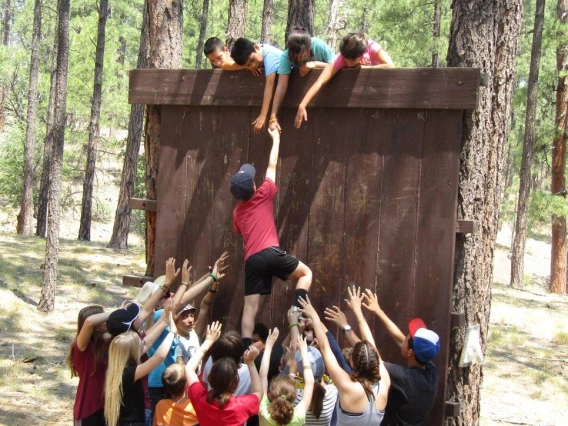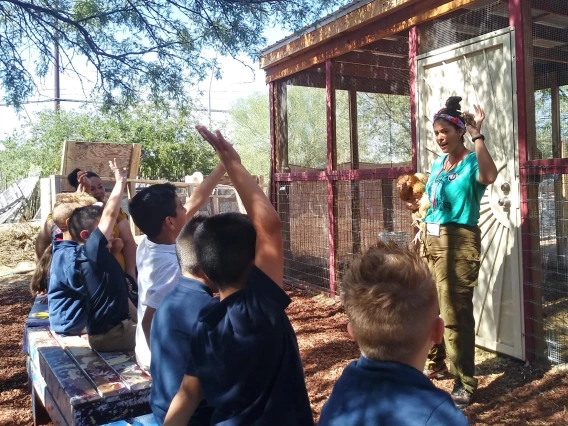Why We Do What We Do
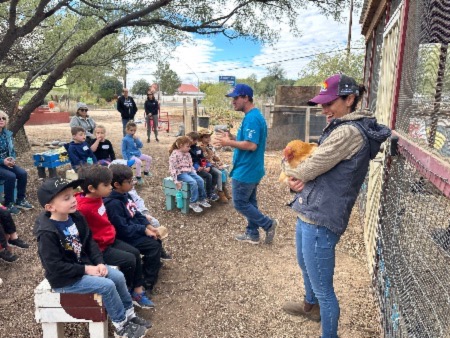 We are raising the first generation of children in the history of our species expected to have a shorter lifespan than their parents, and at Tucson Village Farm, we believe that redefining our relationship to healthy eating is the golden arrow that will shift this current trend towards a healthier trajectory. Our dependence on processed foods, our inability to trace our food past aisle 6 of our big box grocery store, and a sedentary lifestyle have all contributed to the undisputed fact that our society as a whole is unhealthy, and our children are paying the price. We have forgotten how to grow, prepare, and appreciate real food. As individuals, we need to relearn these ancestral skills; as educators, we have a responsibility to teach them and at Tucson Village Farm we believe that this re-education begins with the children.
We are raising the first generation of children in the history of our species expected to have a shorter lifespan than their parents, and at Tucson Village Farm, we believe that redefining our relationship to healthy eating is the golden arrow that will shift this current trend towards a healthier trajectory. Our dependence on processed foods, our inability to trace our food past aisle 6 of our big box grocery store, and a sedentary lifestyle have all contributed to the undisputed fact that our society as a whole is unhealthy, and our children are paying the price. We have forgotten how to grow, prepare, and appreciate real food. As individuals, we need to relearn these ancestral skills; as educators, we have a responsibility to teach them and at Tucson Village Farm we believe that this re-education begins with the children.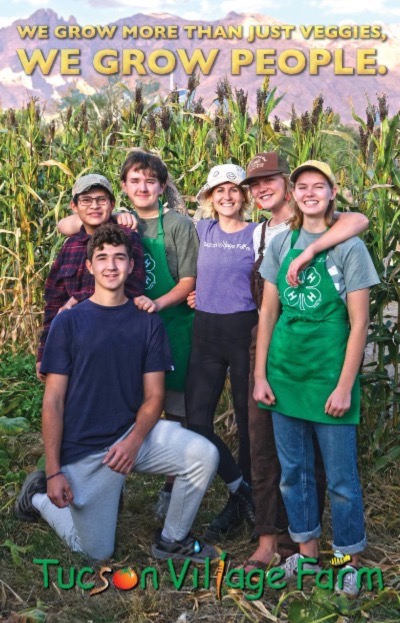
Each year, over 15,000 kids come to the farm and our educators deliver over 60,000 hours of direct, hands-on farm to table education. Our programming model is based on a pay-it-forward one; when kids come to the farm we tell them, “Today you are going to eat something that another student planted for you four months ago and you are going to plant something that another child will eat four months from now.” To the surprise of many parents, much of the produce we grow is eagerly consumed by the youth that come to the farm. We see time and again that when kids come to the farm and have a hand in planting, cultivating and harvesting vegetables, they eat them. Not only do we know firsthand that this is working but we also have the research to back it up.
After conducting an in-depth evaluation of our field-trip based program, University of Arizona researchers reported that after attending a two-hour education program at Tucson Village Farm, students showed a 110% increase in fruit and vegetable consumption. Their willingness to try new fruits and vegetables also increased after they visited the farm.
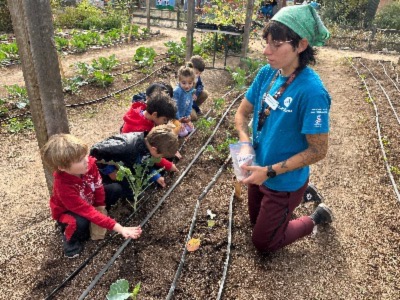 According to The Center for Disease Control and Prevention, only 2% of youth in the U.S. consume the recommended daily allowance of vegetables each day. The city of Tucson reportedly has 38 “food deserts”, or large geographical areas whose residents do not have access to fresh food. With the absence of full grocery stores and fresh food, food choices are limited, with the bulk of meals originating from convenience stores and fast-food chains. A recent study published in “The Journal of the American Medical Association” found that in the United States, one out of every two deaths from heart disease, stroke, and type 2 diabetes is linked to a poor diet. Low-income and food-insecure families are at significantly higher risk of developing diet-related diseases, and with the 2012 U.S. Census Bureau designation of Tucson as the 6th poorest city in the U.S., the need for healthy living education and access to fresh food in this community is critical. In Arizona, one in three youth are either overweight or obese, and one in three Arizona residents born after 2000 will suffer from type 2 diabetes. Although type 2 diabetes and obesity are alarmingly common, research is showing that most diet-related diseases are preventable-and reversible-through healthy diet and lifestyle. And that’s where we come in.
According to The Center for Disease Control and Prevention, only 2% of youth in the U.S. consume the recommended daily allowance of vegetables each day. The city of Tucson reportedly has 38 “food deserts”, or large geographical areas whose residents do not have access to fresh food. With the absence of full grocery stores and fresh food, food choices are limited, with the bulk of meals originating from convenience stores and fast-food chains. A recent study published in “The Journal of the American Medical Association” found that in the United States, one out of every two deaths from heart disease, stroke, and type 2 diabetes is linked to a poor diet. Low-income and food-insecure families are at significantly higher risk of developing diet-related diseases, and with the 2012 U.S. Census Bureau designation of Tucson as the 6th poorest city in the U.S., the need for healthy living education and access to fresh food in this community is critical. In Arizona, one in three youth are either overweight or obese, and one in three Arizona residents born after 2000 will suffer from type 2 diabetes. Although type 2 diabetes and obesity are alarmingly common, research is showing that most diet-related diseases are preventable-and reversible-through healthy diet and lifestyle. And that’s where we come in.
Only 2% of kids eat the recommended amount of vegetables each day, leaving the other 98% at risk for developing chronic diet-related diseases such as type 2 diabetes, obesity, and heart disease.
2022 Numbers:
People served: 15,000
Youth served: 10,000
Pounds of vegetables harvested: 4,550
Hours of program delivery: 65,000
Research shows that eating more fruits and vegetables prevents disease. We know that kids are eating more fruits and vegetables as a result of our efforts. We are looking to promote a healthy future for both kids AND their families.
